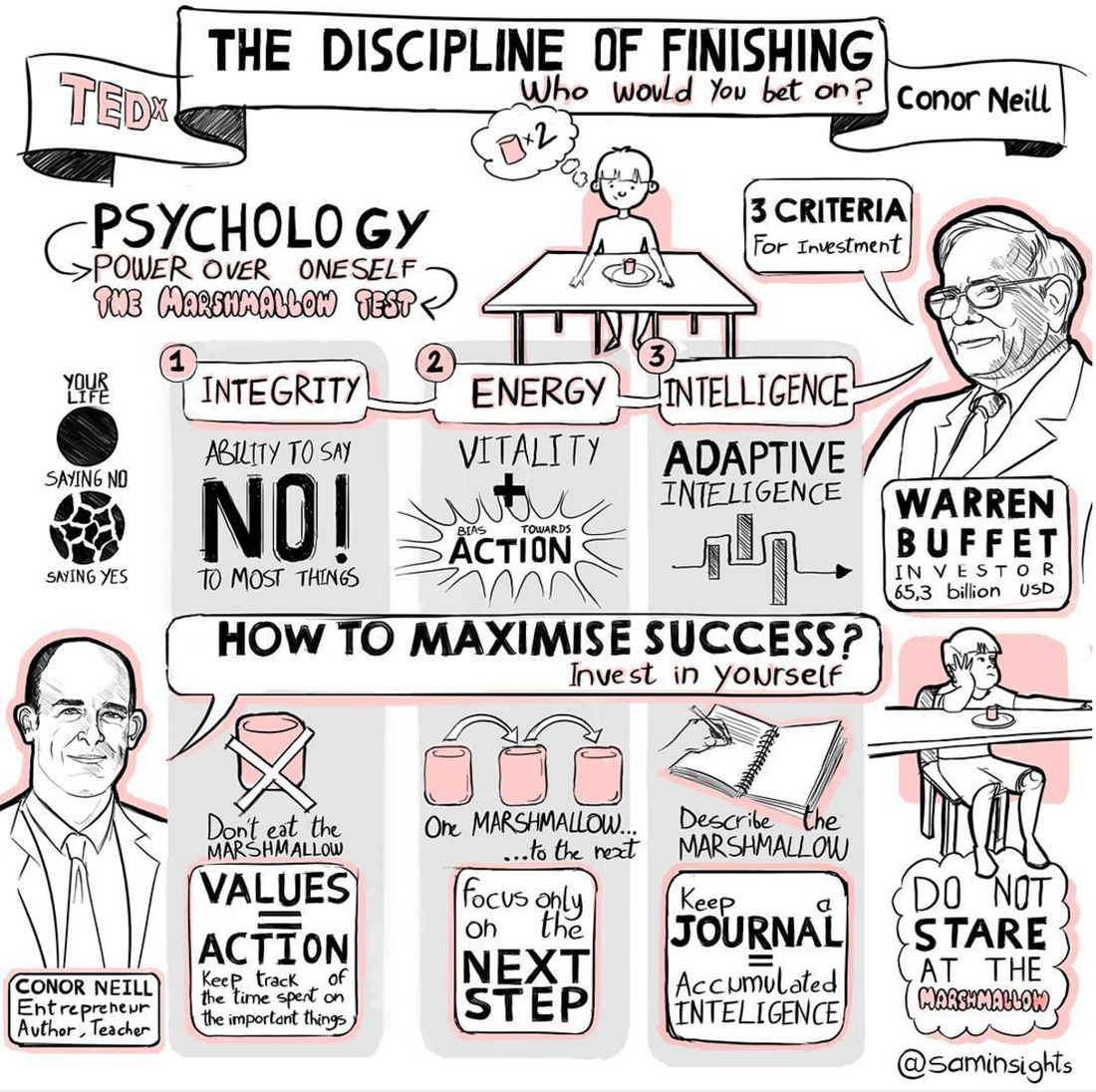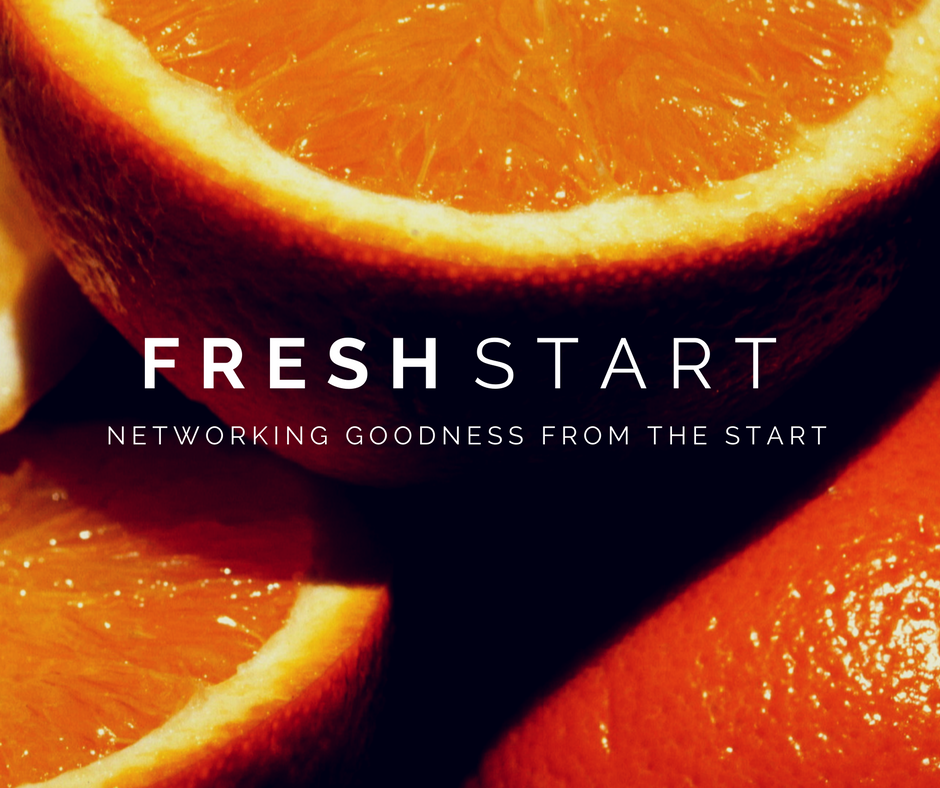|
I just saw this infographic (above) on LinkedIn.
It depicts a graphical summary of Conor Neill's 2013 TEDx talk "Who would you bet on?" The 3 elements of personal success. (The original talk is available on the TEDx youtube channel here ). While the infographic covers a lot of information, I want to camp out a bit on that, 'Keep a Journal,' section. I'm talking about keeping a daily journal of your own free-writing. A journal for brainstorms of ideas, personal reflections, documented gratitude, frustrations, solutions to problems and even To-Do lists . It's one of the simplest advantages you can give yourself to be successful in your career and in your life. How's that? You ask? The act of writing what's on your mind, daily, allows you to articulate thoughts and feelings. Once those thoughts and feelings are out and documented on a page you can examine them a bit more objectively and learn to continue to do things that work for you and discontinue things that do not. Plus, psychologically, getting those thoughts and emotions out frees up some mental capacity to deal with other things. That makes you more productive. Beyond all of that , you get to know yourself. My wife and I always talk about the need to have a good relationship with yourself. Like any relationship you have to work at it. Daily writing is one way to work at having a positive relationship with yourself and increase your emotional intelligence. My suggestion is to wake up slightly early to allow yourself time to write. Spend at least 15 to 20 minutes writing in the morning -- it really does help you start your day off right. If you can spend about 30 to 45 minutes writing that's ideal, but we're all busy. The point here is to get consistent, even if you accidentally miss a day, get back on the horse the following day. My challenge to you is to do this morning writing for at least one entire month and experience for yourself how it makes you feel compared to when you weren't writing. Likely outcomes of this challenge are:
I hope you take the challenge and it serves you well. Good luck! Daily writing and the accumulated knowledge I gain over time from doing it has been one of my personal secret weapons to success. Posted by: Nick Venturella I was asked to speak at Edgewood College's Career Week 2016, but I could not be there so I created this video to answer some of the questions I know will be talked about during Career Week.
Here are the questions I answer in the video:
Thanks, Nick Regardless of how you make your living, you are in business for yourself.
The results you produce for your employer or your clients as an entrepreneur are the skills, abilities and track record you take with you where ever you go in the future. So, yes, even if you're employed somewhere, you work for yourself. Posted by Nick Venturella This is a great interview with Steven Pressfield, who is an author I admire. He wrote, The Legend of Bagger Vance, The War of Art, Do the Work, Turning Pro and many other great books.
Some of what Pressfield talks about is so true in terms of each of our own personal internal struggles toward being successful in ways that are meaningful to each of us -- what makes us truly happy. I know I can relate to his words. He is very wise when talking about one's destiny, and for me, he nailed exactly how I often think about it. It's a bit of a longer video, but worth your time. Posted by Nick Venturella How do you network with others? I mean, what's your intention when you embark on a networking adventure? Do you always have an agenda of whom you want to network with, and why? Or, do you simply show up without an agenda and allow conversations and connections to happen more organically, but push for relationships when you realize you could potentially get something out of it? If you answered, 'yes,' to the previous two questions, then in my opinion, you're approaching networking incorrectly. Sure, it's helpful to understand the company you find yourself among -- those you find yourself socially engaged with, perhaps at a live event or even online (i.e. on LinkedIn). However, knowing your audience and entering into networking situations armed with the question, "how can I genuinely help those I choose to network with?," will serve you better than the me-focused thinking of, "what can I gain from networking here?" The reason is simple: Most people (unfortunately) don't expect others to genuinely want to help them without expectation of having to provide something in return. That's the advantage you can have as you network with others: being helpful without expectation of anything in return. Most people network with an agenda to connect with others and get something from the relationship. That's not necessarily a bad thing unless your only intention is truly to get something and you don't really care about the relationship. Then you're just using people. You have to authentically care about helping others out. The more you selflessly give in this way, over time, the more return on your relationships you will experience. It won't always happen in exactly the way you might think, but you will have provided yourself far more trusting relationships and way more opportunities for others to help you than your counterparts who take a more selfish approach. This caring, selfless approach to relationship building (a.k.a. networking) works because human psychology is playing in your favor. While you're not expecting anything from others when you help them out, those you help out will feel you did something positive and unexpected for them and because you didn't ask for anything in return they will likely feel even more loyal to you and actually want to help you when an opportunity to do so presents itself. Post by: Nick Venturella |
Invest in yourself. Get creative/business/life insights in your inbox - sign up for my eNewsletter.
Archives
July 2024
|




 RSS Feed
RSS Feed

